
Portuguese Felog (Doughnuts) Recipe Recipe Recipes
Prepare the Coating: In a shallow bowl, mix cinnamon and sugar. Fry the Sonhos: Fill a medium saucepan with oil to a depth of about 3 inches (about 3 cups) and heat the oil to 350˚F. Using a small ice scream scoop or a small spoon, scoop a few balls and drop them into the hot oil. Work in batches and don't crowd the pan.

Portuguese Bakery Ottawa
Remove from the heat and set it aside. In a large mixing bowl of a stand mixer with the whisk attachment, add the eggs, salt, and sugar blend on medium speed for about 2 minutes. Slowly add the milk and butter mixture into the egg mixture at slow speed, then increase the speed to medium and mix for 60 seconds.
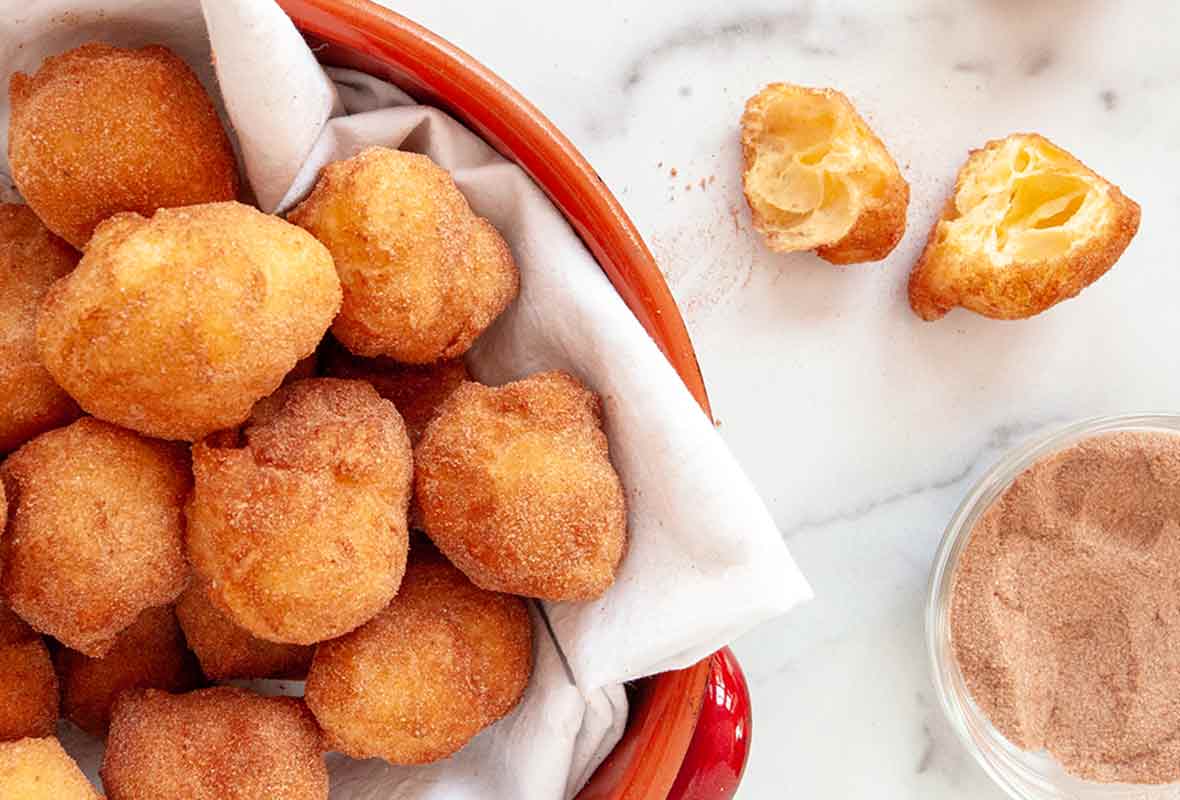
Sonhos Portuguese Doughnuts Recipe Leite's Culinaria
In a medium saucepan, combine the water, butter and sugar. Bring to a boil, then turn off the heat and stir in the flour. Stir until the mixture forms a ball. Move the batter to a medium bowl and let cool. Use an electric mixer to beat in the eggs, one at a time. Add lemon extract and a pinch of salt.
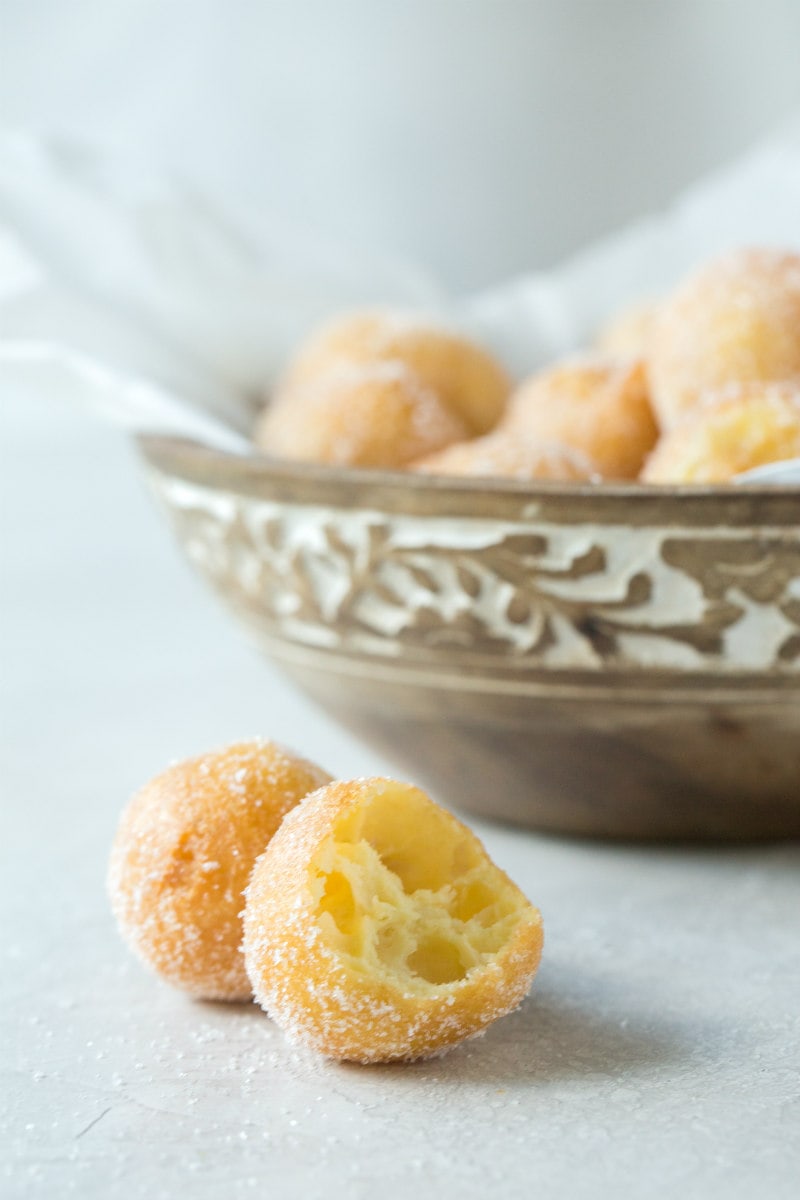
Portuguese Doughnuts (Sonhos) Recipe Girl®
INSTRUCTIONS FOR THE PORTUGUESE CUSTARD FILLING. In a large bowl, add the cornstarch, sugar, 3 tablespoons of milk and whole eggs and mix together using a whisk. Add the remaining milk and lemon peel into a pot and heat the milk on medium heat just until it begins to boil. Remove the lemon peel and pour the hot milk into the cornstarch mixture.
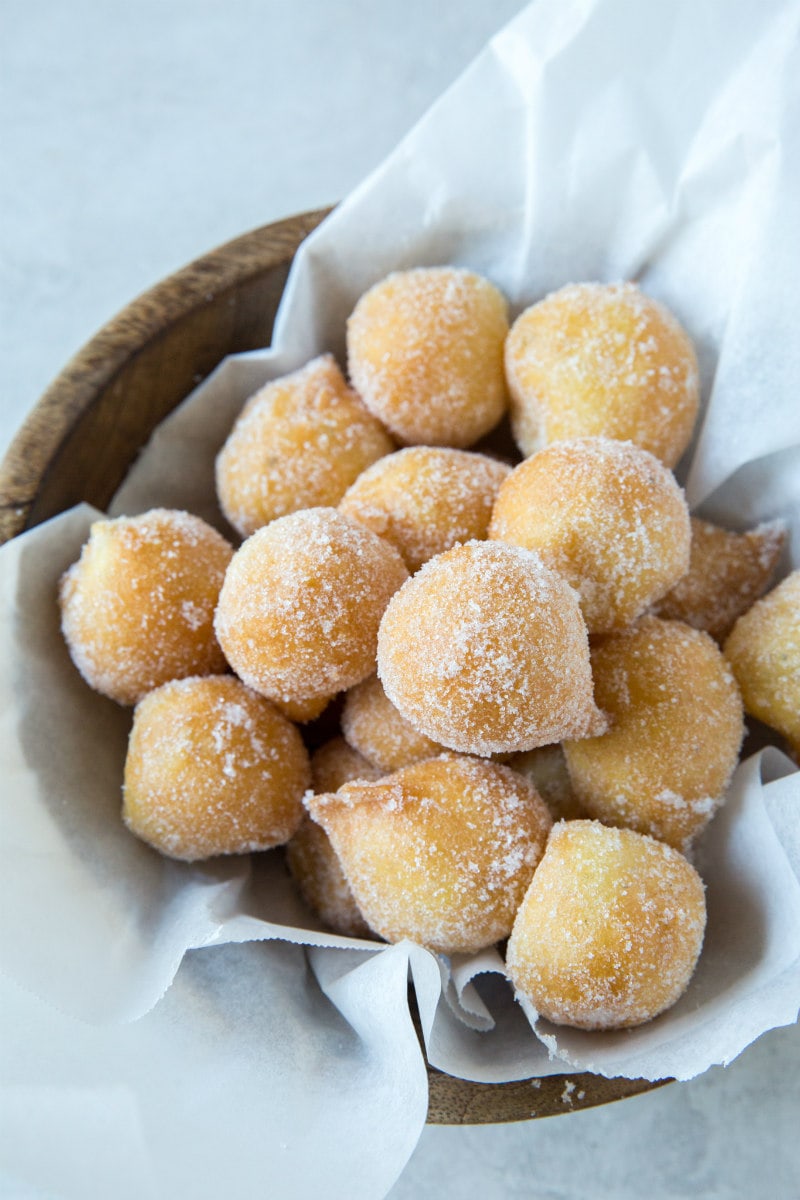
Portuguese Doughnuts (Sonhos) Recipe Girl®
For Fat Tuesday and during the week of Carnaval, Portuguese folks go crazy making delicious sweet treats like these filhózes, and participating in comedic sketches. Growing up, our small Portuguese community in Idaho would gather together to watch a group of us perform such comedic sketches, and then afterwards eat the yummy filhós.

Sonhos Portuguese Doughnuts Recipe Recipes, Doughnut recipe
Heat 3 inches of oil to 350°F in a tall, heavy-bottomed pot. Working in batches, carefully drop 2-tablespoon-sized balls of dough into the oil and fry until golden brown and cooked through, about 4 minutes. (Be sure the temperature of the oil returns to 350°F before frying a new batch.) Transfer the fried malasadas to a plate lined with paper.

What are Portuguese Doughnuts? • A Portuguese Affair
She started Farmgirl Gourmet in 2006, almost 20 years ago, as a way to share recipes with friends and family. Heather is also the co-founder of Spiceology , a unique spice company, which she started in 2013. She shares family friendly recipes for easy everyday meals with a gourmet twist. Portuguese Filozes donuts are dusted in cinnamon sugar.
Peppers in Paradise Portuguese Doughnuts Malasadas
Step 5: Let the dough rise. Scrape the dough out of your mixing bowl onto a lightly floured surface. Knead it a few times to form it into a smooth ball, and place it into a fresh, lightly oiled bowl. Cover the bowl and let the dough rise for 45 minutes or until doubled in size, whichever comes first.

Portuguese Doughnuts (Felozes) recipe from portugal
Instructions. In the bowl of a stand up mixer** make the starter by whisking together the yeast, warm milk, sugar and flour. Allow the yeast to proof for about 15 minutes. Once the concoction is foaming and bubbly, the yeast has activated. Mix together the flour, sugar and salt for the malasada dough.
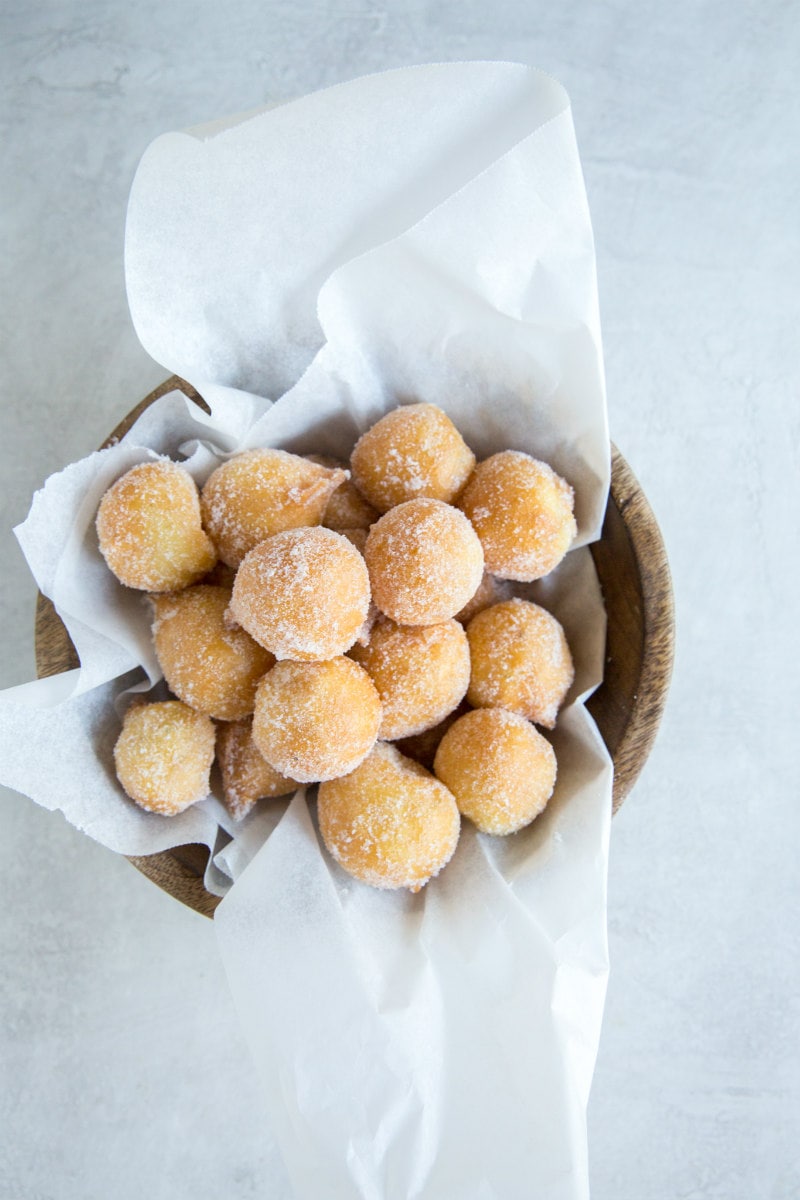
Portuguese Doughnuts (Sonhos) Recipe Girl®
Make the doughnuts | malassadas. Heat the milk, butter, and salt in a medium saucepan over medium-high heat, stirring frequently, until it just begins to steam and form bubbles around the edges, about 5 minutes. Remove from the heat and let cool until lukewarm. Meanwhile, in a small bowl, dissolve the yeast and 1 teaspoon sugar in the warm water.
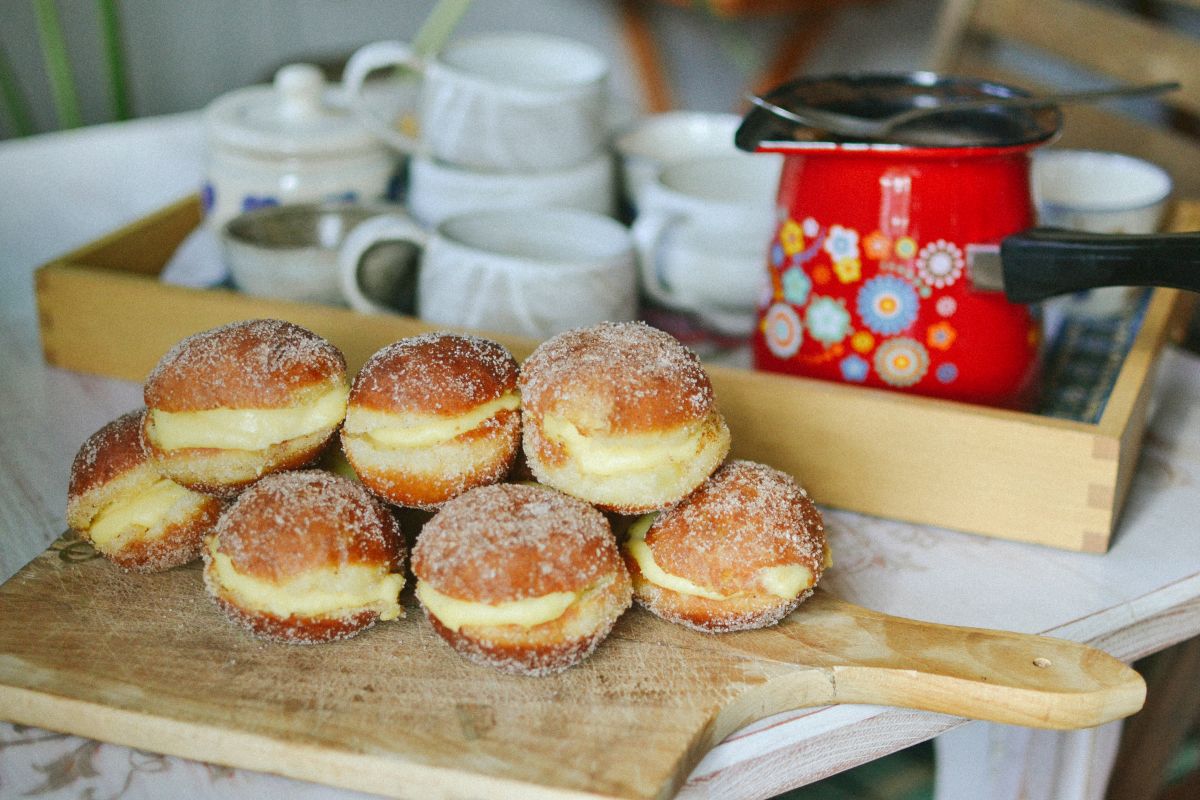
Tiny Portuguese donuts (Bola de Berlim) with vanilla cream Recipe
Directions. Dissolve yeast and 1 teaspoon sugar in 1/4 cup warm water; set aside. In small bowl, beat eggs until thick. Put flour in large bowl, making a well in the center. Into the well add yeast, eggs, 1/2 cup sugar, melted butter, milk, 1 cup water, and salt. Beat thoroughly to form a soft, smooth dough. Cover, let dough rise until doubled.
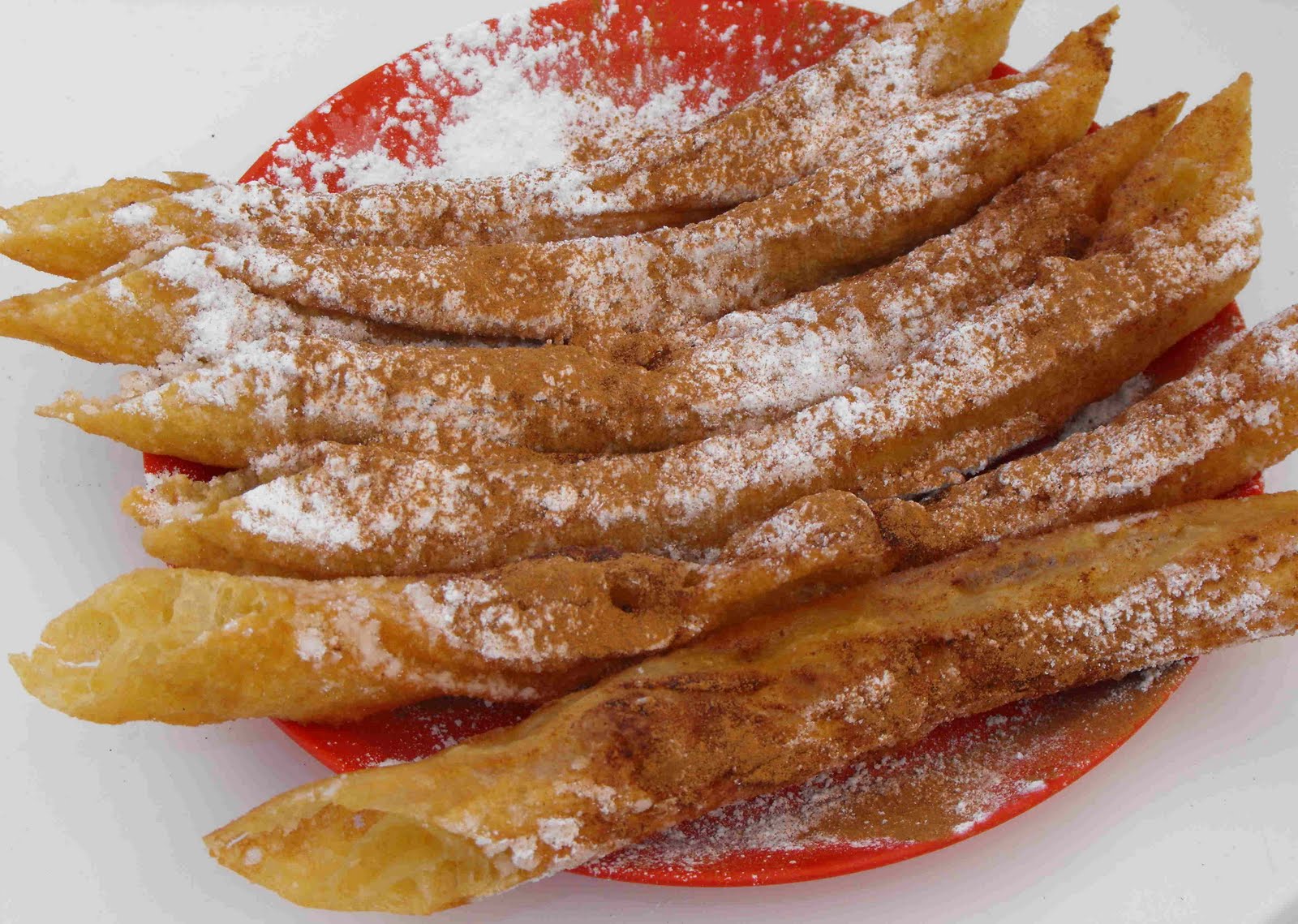
Easy to Make Portuguese Doughnuts (Farturas)
PORTUGUESE BOLA DE BERLIM DONUTS. Dissolve the dry yeast in some of the milk and let stand to activate for 10 minutes. Make The Dough - Add the milk, activated yeast, salt, sugar, butter, eggs and flour into a mixing bowl and attach the hook. Mix on low speed for 5 minutes then increase the speed to medium and continue mixing for 3 minutes or.

Portuguese donuts Portuguese, Bagel, Donuts, Breads, Baking, Food
Instructions. In a small bowl dissolve the yeast packets with the ¼ cup of lukewarm water and leave aside. In a small saucepan melt the stick of butter and leave aside. In a large bowl beat together the eggs, sugar, butter and lemon zest until creamy. Then add in small intervals the flour and salt and continue to mix well.
Recipe Marketing Portuguese Donuts
Dissolve the yeast and the 1 tablespoon of sugar in warm water. In a large mixing bowl, combine the all-purpose flour, sugar and salt and make a well in the center. Add the milk, butter, eggs and yeast mixture. Beat thoroughly to form a soft and smooth dough. Cover and let rise until doubled in size, about an hour.

In Search of the Finer Things Filhos (Portuguese Doughnuts)
Fry the sonhos. Add enough oil to a wide saucepan or Dutch oven to reach a depth of 3 inches (8 cm). Warm the oil over medium-low heat until it registers 300°F (150°C). Using a 2-teaspoon cookie scoop or a rounded teaspoon measuring spoon, carefully drop a few globs of dough in the hot oil.
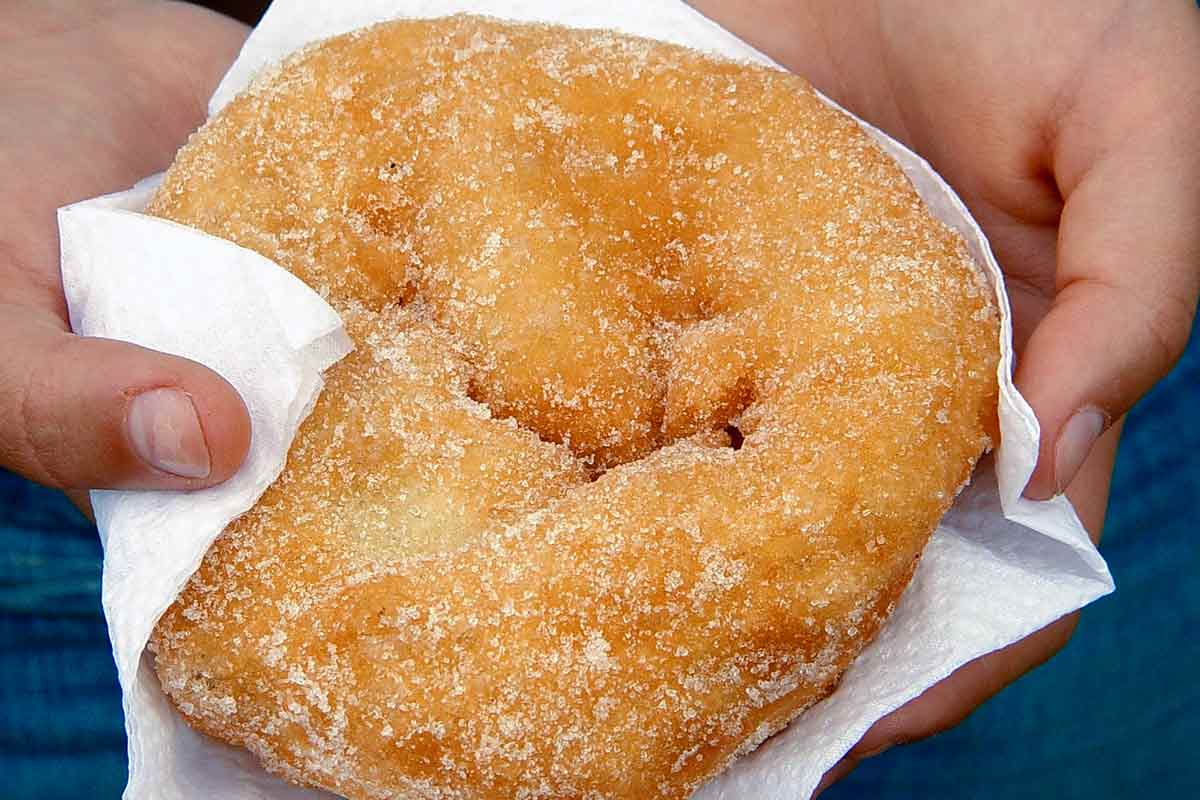
Malassadas Portuguese Doughnuts Recipe Leite's Culinaria
Malassada is a Portuguese fried pastry from the Azores.It is a type of doughnut, made of flattened rounds of yeasted dough, coated with sugar and cinnamon or accompanied with molasses.. The name malassada is often used interchangeably with filhós. However, according to the Direção-Geral de Agricultura e Desenvolvimento Rural (DGARD), these two regional pastries are distinct―the Azorean.